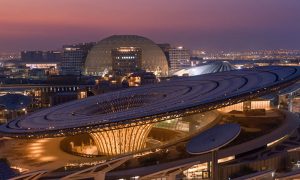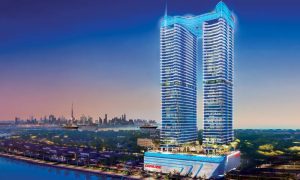Why you should keep investing in Dubai
Zaki Ameer, founder of Dream Design Real Estate, argues investors should keep supporting Dubai’s property market

After its initial boom, when the Dubai property market plummeted into its recession between 2007 and 2010 it took some time for investors to regain confidence in Dubai as a safe destination for property investment. Scores of residents and foreign investors managed to cash in at the high of the market, but countless investors also saw major losses during the crash, before the market slowly re-emerged, albeit slightly bruised and battered.
Since then, many keen investors have rightfully come to view Dubai’s real estate market as a long-term game, rather than merely a short-run opportunity to make a quick buck. 2007 was a crisis for Dubai and the market was unsure how to respond, causing many to leave the country and property prices to drop dramatically.
Dubai’s RERA has since been created, with the aim of making it a more stable place to invest, but much work is yet to be done before a sense of security is widely felt, and to ensure money stays and is invested in the UAE.
Over time, investors have again begun looking to the future with a keen yet cautious eye. With the city’s real estate market conditions beginning to recover and stabilise, builders, developers and owners-turn-sellers began putting into place manageable payment plans geared towards middle-income earners.
The focus shifted to gradually building a unique property portfolio allowing continuous, long-term growth and re-investment, rather than just short-run hits. Many government-led developments which had recently emerged also adapted their positions to make purchasing more accessible to average-income earners.
In the past, payment plans were more stringent, such as the 70/30 structure, which meant a big chunk had to be paid off during construction, and sometimes even before it had started. Plans today are a lot more flexible, such as 20/80, making payments affordable by the majority who are middle-income earners looking for more spaced-out payment schedules. With strong regulations and laws put in place by the Dubai Land Department, payment plans are pre-approved prior to any formal launch, which improves reliability.
Cementing the idea that Dubai is emerging as fertile territory for investors, according to the 2017 Annual Transactions report released by the Dubai Land Department (DLD), in 2017 there were 69,000 transactions in Dubai, valued at an incredible Dhs 285bn. The report states that Dubai’s real estate market attracted investors globally, including Gulf nationals, Arabs and foreigners, with almost 40,000 investors undertaking around 53,000 transactions worth in excess of Dhs 107bn. These statistics present a positive forecast for renewed cycles of growth on the horizon, confirming the strength of the market and its ability to grow, and presenting fantastic opportunities for both experienced and green investors.
It is also worth mentioning that the buyer profile today is very different from the historic type. The current client consists of end users, expats, long-term investors and first-time buyers. This type of buyer creates stability in the market and builds a large pool of buyers that are less sensitive to external factors, and encourages expat spending.
Also interesting is that despite the city’s reputation for being an incredibly costly place to live or visit, Dubai actually places 34th on the global rankings according to New World Wealth, which means that places such as Monaco, New York, London, Paris, Rome and Milan are ahead of Dubai in terms of property prices. This suggests Dubai is still considered affordable territory for property investment and, with the surging economy, will be one to watch in the long term, especially as supply and affordability meet demand and economic growth.
Of course, one of the most important factors to note is that with Dubai playing host to Expo 2020, the current prediction for international visitors stands at 25 million people from 180 nations across a period of six months. This places Dubai in the eye of foreign property investors, as well as being a rental base for many for as long as six months, housing visitors and exhibitors.
Property demand will be extremely high during this period and beyond. Prior to 2020 is the ideal, most lucrative time to purchase property in the city. Expo 2020 and other factors will definitely contribute to making Dubai’s properties lucrative, offering high rates of return.
One can also take advantage of the many delayed projects put on hold from the last boom that have gradually kick-started, which has overlapped with the ongoing property development plans, creating an oversupply of affordable and luxury properties on the market.
Numbers tell the story, and leading up to Expo 2020, more jobs and economic creation are forecast. It’s all about taking advantage of a market that has passed through its birth and fall phase, and while standing tall on its mature merits, the city is looking to attract investors with long-term plans.

























